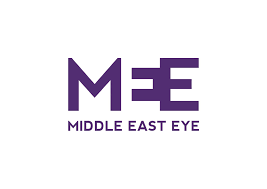Israel's Smotrich to approve E1 settlement plan that 'buries Palestinian state'
Israel's Smotrich to approve E1 settlement plan that 'buries Palestinian state'

Bezalel Smotrich, Israel’s finance minister, has announced that he is set to approve the highly controversial E1 settlement project as it “buries the idea of a Palestinian state”.
The minister said on Wednesday that he planned to approve tenders to build more than 3,000 housing units for Israeli settlers, in an area that aims to connect existing settlements in Maale Adumim in the occupied West Bank with occupied East Jerusalem.
“Approval of construction plans in E1 buries the idea of a Palestinian state and continues the many steps we are taking on the ground as part of the de facto sovereignty plan that we began implementing with the establishment of the government,” Smotrich said.
“After decades of international pressure and freezes, we are breaking conventions and connecting Maale Adumim to Jerusalem. This is Zionism at its best - building, settling, and strengthening our sovereignty in the Land of Israel.”
The announcement appears to be a direct response to France, Britain, Canada and Australia announcing in recent days their intentions to recognise a Palestinian state at a United Nations summit next month.
The E1 project seeks to cut off Palestinian communities from one another and significantly disrupt territorial continuity. It will isolate East Jerusalem from parts of the West Bank, forcing Palestinians to take lengthy detours to travel between cities and towns.
Although the E1 construction plan dates back to the 1990s, its implementation has repeatedly been delayed due to international opposition.
Both the United States and the European Union have warned successive Israeli governments against advancing the project, citing its devastating impact on a prospective two-state solution.
In March, Israel’s political-security cabinet approved a separate road for Palestinians south of the E1 area, linking the northern and southern West Bank.
The road was viewed as a preparatory step to expanding settlement construction in the area.
Under the plan, Palestinian traffic would be rerouted away from Route 1 - the main highway connecting Jerusalem to Maale Adumim - reserving it primarily for Israeli use.
Around 700,000 Israeli settlers live in roughly 300 illegal settlements across the West Bank and East Jerusalem, all of which have been built since Israel seized the territories in the 1967 Middle East war.
Under international law, settlement construction in an occupied territory is illegal.
Smotrich and other Israeli figures have repeatedly spoken of the “sovereignty plan”, referring to the formal annexation of parts of the West Bank through changing the reality on the ground.
“The Israeli government is openly announcing apartheid,” said Aviv Tatarsky, a researcher at Israeli rights group Ir Amim.
“It explicitly states that the E1 plans were approved to ‘bury’ the two-state solution and to entrench de facto sovereignty. An immediate consequence could be the uprooting of more than a dozen Palestinian communities living in the E1 area.”
Tatarsky called on states working to recognise a Palestinian state to “understand that Israel is undeterred by diplomatic gestures or condemnations”, and to therefore take “concrete action”.
“Israel repeatedly uses planning and construction as weapons to seize land and displace villages,” said Alon Cohen-Lifshitz, an architect at Bimkom, an Israeli human rights group bringing together planners and architects.
“In the E1 area, one of the quietest yet most chilling forms of Israeli violence is institutionalised planning violence.”







